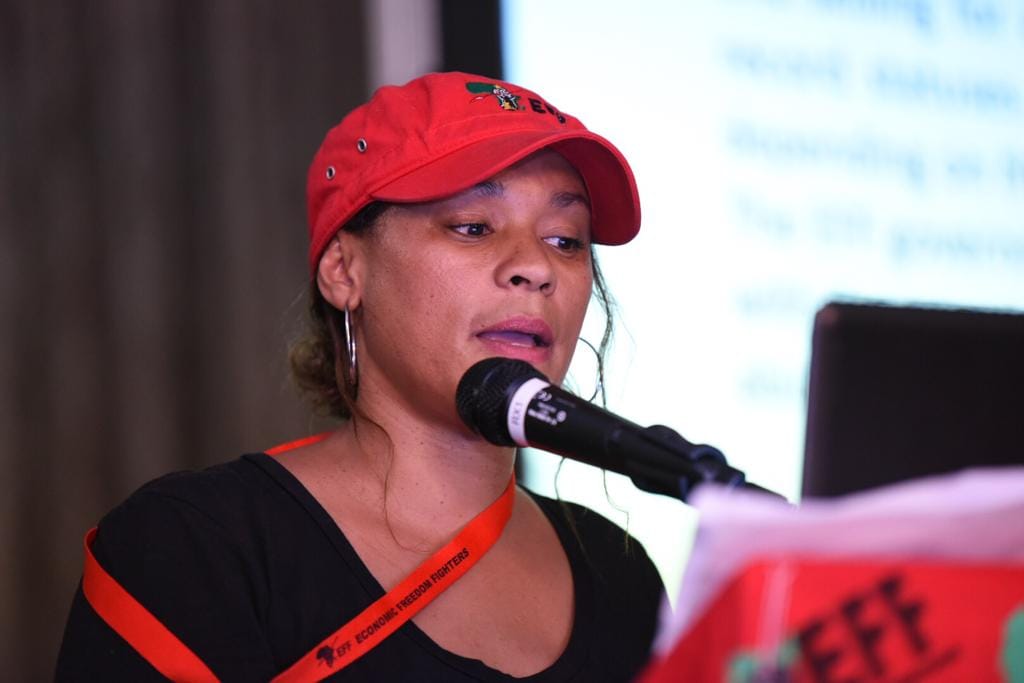By Thapelo Molefe
The EFF has lashed out at President Cyril Ramaphosa and his administration for delaying the full implementation of the Basic Education Laws Amendment (Bela) Act.
In a strongly worded statement on Sunday, the EFF accused the government of bowing to pressure from right-wing groups, including the Democratic Alliance (DA) and AfriForum, to hinder progressive reforms in South Africa’s education system.
The Bela Act, signed into law on September 13, 2024, seeks to centralise control over school admissions and language policies.
Clauses 4 and 5 of the Act transfer decision-making power from School Governing Bodies to provincial Heads of Departments, a move aimed at fostering inclusivity in schools.
These changes, however, have faced opposition from groups the EFF claims are working to preserve “Afrikanerdom” within the education sector.
The implementation of the contentious clauses has been postponed by three months, reportedly to allow for further consultations.
The EFF claims the delay is politically motivated, aimed at appeasing the DA and other conservative elements within the Government of National Unity (GNU).
The party also condemned what it described as a “clearing of house mechanism,” an alleged process within the GNU coalition that enables the ANC and DA to revise laws behind closed doors.
According to the EFF, this mechanism undermines democratic processes and compromises the integrity of legislation.
“The ‘clearing of house mechanism’ of the GNU is not a democratic or oversight instrument other and therefore holds no legal jurisdiction to review the laws which are adopted by the of the National Assembly nor is it established by any provision of the Constitution of South Africa,” EFF national spokesperson Leigh-Ann Mathys said in a media statement on Sunday.
“It is a collaboration of political parties which have assigned Ministerial positions to each National Assembly and the National Council of Provinces.”
The EFF raised concerns about alleged compromises made during private negotiations, warning that these could dilute the transformative goals of the Bela Act.
The EFF also cautioned the Minister of Basic Education Siviwe Gwarube against obstructing the Act’s implementation.
The party demanded severe consequences for the Minister, including possible removal, should delays persist.
“Should there be any prolonged and politically motivated delay, the Minister of Basic Education must face severe consequences,” Mathys said.
The EFF has further accused the ANC of abandoning progressive policies to preserve its alliance with right-wing groups in the GNU coalition.
The party argued that the delays in implementing the Bela Act reflect a broader pattern of governance undermined by political expediency.
“The ANC has shown that it is willing to sacrifice transformative legislation to appease its coalition partners, undermining the very democracy it claims to uphold,” said Mathys.
Despite these setbacks, the EFF pledged to continue supporting progressive legislation while scrutinizing any compromises that could weaken the BELA Act’s objectives.
The party also reaffirmed its commitment to transformative policies, including the nationalisation of the South African Reserve Bank (SARB).
“The EFF will continue to fight for policies that advance equality and justice, regardless of whether we are in government or not,” said Mathys.
“The education of our children should never be subjected to petty electioneering or the appeasement of reactionary forces.”
INSIDE POLITICS

